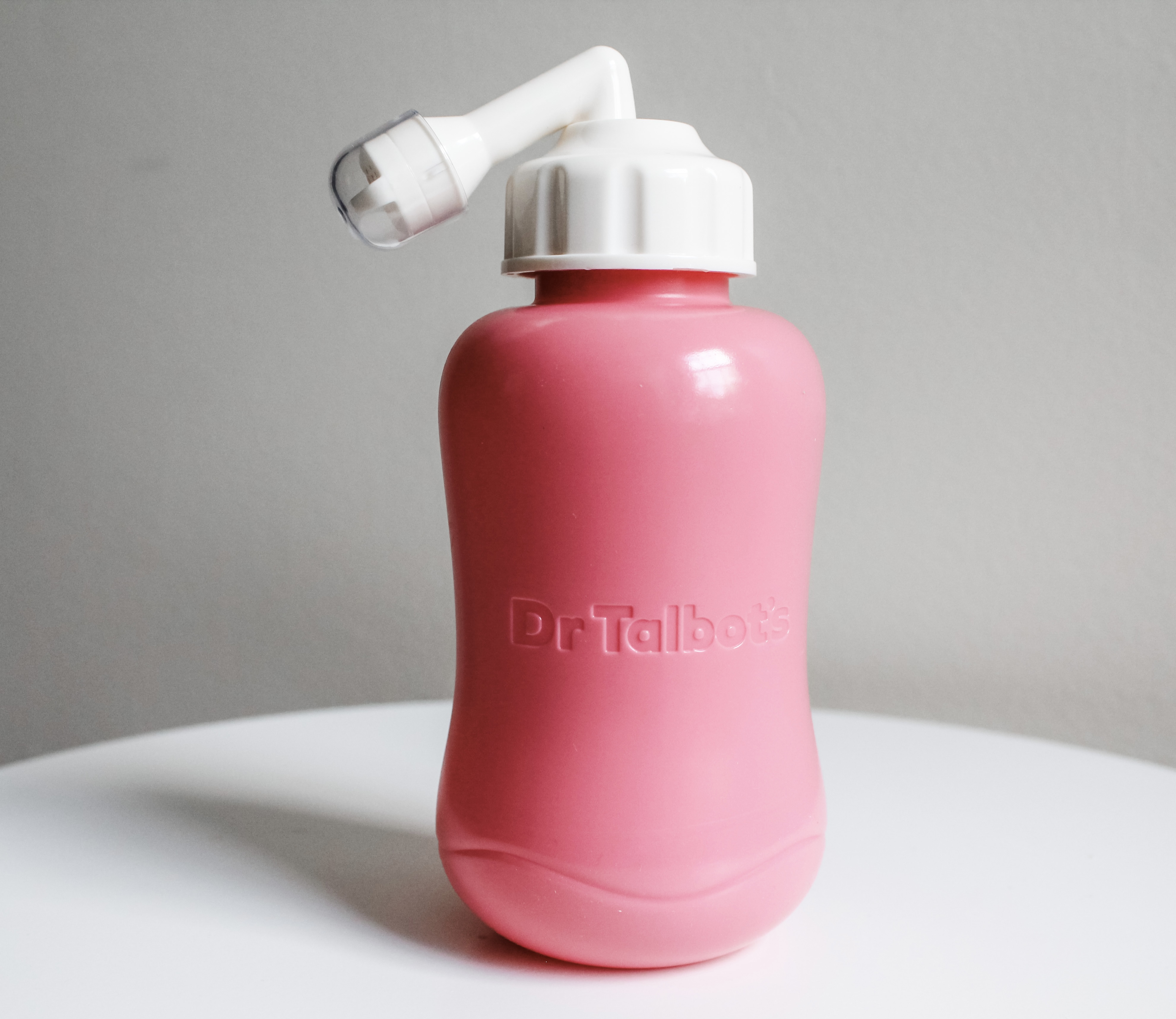Having a baby, whether through vaginal or caesarean birth, puts a huge strain on your body and it can take weeks, if not months, to fully recover.
It’s important not to put too much pressure on yourself after giving birth. Taking care of your physical and mental health should be a priority.
10 postpartum tips for new mums
1. Use a peri bottle to ease discomfort when weeing

If you’ve had a vaginal birth, a peri bottle can really help, especially if you’re finding it painful to wee. Fill it with warm water and gently squeeze it onto your vagina while using the toilet. This can reduce stinging and help keep the area clean between baths and showers. It is also useful if you've had a caesarean birth, as you can use it to keep the area clean between showers. You can read more in our blog post about what a peri bottle is and how to use it.
2. Wear maternity pads or knickers to manage lochia
After birth, you’ll experience vaginal bleeding known as lochia. This happens whether you’ve had a vaginal or caesarean birth. Use super absorbent maternity pads or knickers for the first few weeks until the bleeding stops. If you’re breastfeeding, you might notice the bleeding increases due to your womb contracting. This is completely normal and nothing to worry about.
3. Take short walks when you feel ready
Once you feel up to it, gentle walks with your baby can support your physical recovery and boost your mental wellbeing.
4. Eat well to help prevent constipation
Eating a balanced diet is key to avoiding constipation after birth. The NHS recommends plenty of fresh fruit, vegetables, salad, wholegrain cereals and wholemeal bread, along with lots of water.
If you’ve had a caesarean birth, you may also experience trapped wind or constipation. Your midwife might suggest a laxative to ease this.
5. Sleep when your baby sleeps, even during the day
This one’s a classic for a reason. You’ll be exhausted in those early weeks and getting rest whenever you can is essential. Don’t feel guilty for napping during the day if that’s when you’re able to sleep.
6. Ask friends, family and healthcare providers for help
You don’t have to do it all on your own. If you’re feeling overwhelmed, ask for helo. Your support network, whether that’s your partner, family, friends or healthcare team, is there for you.
7. Try nipple cream and warm compresses for breast pain
If you’re breastfeeding, nipple cream can soothe sore or swollen nipples. If your breasts become engorged, applying a warm cloth before expressing can help encourage milk flow and ease discomfort. You can also hand express a little to relieve the pressure, but try not to express too much, as this can lead to increased milk production.
8. Start pelvic floor exercises when you feel ready
These exercises help strengthen the muscles around your bladder, vagina and bottom and can prevent or improve incontinence. Start as soon as you feel able to.
9. Keep stitches clean with warm water
Whether you’ve had stitches from a tear, a cut or a caesarean, keeping them clean is important to prevent infection. Gently bathe the area daily using plain warm water and pat dry.
10. Wear loose clothing
What you wear is entirely up to you, but loose fitting clothes can offer more comfort in the early weeks. This is especially helpful after a caesarean birth, as tight clothes can irritate your wound.
